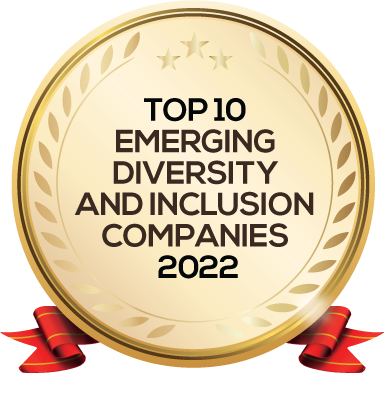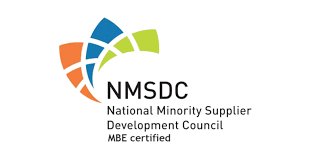Empower Diversity: A Guide to Celebrating Black History Month in Your Organization
This resource has been crafted by The Diversity Advisors, your partners in providing actionable steps and thoughtful strategies to recognize and honor Black History Month. As you embark on this journey, this guide serves as your roadmap to creating a more inclusive, respectful, and culturally aware workplace.
Black History Month is not just a period of remembrance; it’s a time for reflection, education, and action. It offers a unique opportunity for organizations to engage with the stories, contributions, and experiences of the Black community. This guide aims to help your organization move beyond mere acknowledgment, inspiring meaningful participation and a deeper understanding of Black history and culture. From internal initiatives that enrich your company culture to community engagement that strengthens bonds with the broader society, we offer a comprehensive approach to celebrating this important month.
As you read through this guide, we encourage you to view these suggestions not as a checklist, but as a starting point for a broader, ongoing commitment to diversity and inclusion within your organization. The journey towards a truly inclusive workplace is a long-term process, and each step you take is a stride toward a more equitable and empathetic world.
We hope this guide inspires, educates, and empowers your organization to not only celebrate Black History Month but to embed the values of diversity and inclusion in every aspect of your corporate ethos.
Section 1: Internal Initiatives
Fostering an Inclusive Workplace Culture
Black History Month offers a unique opportunity for companies to deepen their commitment to diversity and inclusion internally. This section provides actionable steps and ideas to engage employees and honor the significance of Black History Month in the workplace.
1.1 Hosting Educational Workshops and Speaker Events
- Diverse Speakers: Invite guest speakers who are experts in African American history, culture, or contemporary issues. These can include historians, authors, activists, or local community leaders. Ensure these sessions are interactive, allowing for Q&A and discussions.
- Interactive Workshops: Organize workshops that focus on topics like unconscious bias, cultural sensitivity, and inclusive communication. These workshops should aim to educate and also provide practical tools for employees to implement in their daily work lives.
- Virtual Events: For remote teams, consider virtual events or webinars. These can be live-streamed or recorded for later viewing, ensuring accessibility for all employees.
1.2 Spotlighting Black Employees and Their Contributions
- Employee Features: Celebrate the achievements and stories of Black employees within your organization. This could be through internal newsletters, social media, or dedicated events. It’s important to seek voluntary participation and respect individuals’ privacy and preferences.
- Career Development Panels: Host panel discussions or fireside chats featuring Black professionals discussing career paths, challenges, and successes. This can provide inspiration and mentorship opportunities within your organization.
- Acknowledging Historical Figures: Dedicate space in your internal communications to highlight historical Black figures who have made significant contributions in various fields.
1.3 Creating a Diversity Book Club or Movie Night
- Curated Reading Lists: Start a book club focusing on works by Black authors or about Black history and experiences. Provide a curated list of books and facilitate monthly discussions.
- Movie Screenings: Organize movie nights featuring films that celebrate Black culture or address important issues related to race and diversity. Follow up the screenings with guided discussions or informal chats about the themes and lessons.
- Resource Sharing: Make it easy for employees to access and share resources related to Black history and culture, such as articles, documentaries, podcasts, and more.
Implementing these internal initiatives not only honors Black History Month but also contributes to building a more informed, empathetic, and inclusive workplace culture. Remember, the key is to create a safe and respectful environment for learning and discussion, where all employees feel valued and heard.
Section 2: Community Engagement
Embracing the Community Spirit
Celebrating Black History Month is not just an internal company affair; it extends to how your organization interacts with and supports the wider community. This section outlines steps your company can take to engage with and contribute to the local community, honoring Black History Month in a meaningful and impactful way.
Collaborating with Local Black-Owned Businesses
- Identify and Partner: Begin by identifying local Black-owned businesses in your area. Reach out to them to explore partnership opportunities. This could be as simple as catering from a Black-owned restaurant for company events or as involved as long-term business collaborations.
- Promote and Support: Use your company’s platforms to promote these businesses. Feature them in your newsletters, on your website, and on social media. Highlight their stories, products, or services to your audience.
- Engagement Activities: Organize events where these business owners can showcase their products or services to your employees. Host pop-up shops, business fairs, or speaking events where they can share their entrepreneurial journey.
Volunteering and Supporting Black Community Projects
- Volunteer Programs: Coordinate volunteer programs where your employees can contribute their time and skills to projects that uplift the Black community. This could include mentoring programs, community clean-ups, or supporting local non-profits.
- Highlight Local Initiatives: Use your company’s communication channels to bring attention to local initiatives and projects that are making a difference in the Black community. This not only raises awareness but also shows your company’s commitment to these causes.
Participating in Black History Month Events
- Community Events: Participate in or sponsor local Black History Month events. This could range from cultural festivals to educational seminars. Encourage employee attendance by offering time off or organizing group outings.
- Internal Event Hosting: Host your own event that is open to the community. Invite local Black historians, artists, or speakers to share their experiences and knowledge. Ensure these events are accessible and welcoming to all.
- Cultural Immersion Activities: Organize cultural tours or visits to local historical sites significant to Black history. These experiences can be eye-opening and offer a deeper understanding of the local Black community’s history and contributions.
Engaging with your community during Black History Month is a powerful way to extend the spirit of inclusion and respect beyond your organization. It fosters stronger community ties, enhances understanding, and demonstrates a genuine commitment to celebrating and supporting the Black community. Remember, the goal is to create lasting relationships and impacts that go beyond just one month of the year.
Section 3: Social Media Engagement
Amplifying Black History Month on Digital Platforms
Social media is a powerful tool for spreading awareness and engaging both your employees and the wider community during Black History Month. This section offers strategies for impactful social media campaigns and includes guidelines and sample posts to ensure respectful and effective messaging.
Crafting Impactful Social Media Campaigns
Themed Campaigns: Create a month-long campaign with a specific theme related to Black History Month. This could revolve around historical figures, contemporary achievements, cultural awareness, or promoting diversity and inclusion.
Consistent Posting: Maintain a consistent posting schedule throughout the month. Plan a mix of content types, such as informational posts, quotes, infographics, employee stories, and links to articles or resources.
Engaging Visuals: Use compelling visuals that are respectful and representative of the Black community. Ensure that any imagery used is culturally sensitive and appropriate.
Sharing Educational Content and Stories
Educational Posts: Share facts, historical information, and achievements of Black individuals and communities. Aim to educate your audience about aspects of Black history that may be lesser-known or underrepresented.
Storytelling: Highlight personal stories and experiences of Black employees, customers, or community members (with their consent). Storytelling can be a powerful tool to humanize issues and foster empathy.
Resource Sharing: Post links to resources for further learning about Black history and culture. This can include books, articles, documentaries, and educational websites.
Promoting Black Voices and Creators
Amplify Voices: Use your platform to amplify Black voices, including authors, artists, activists, and thought leaders. Share their content, quotes, or works with proper attribution and respect.
Collaborations: Collaborate with Black influencers, creators, or thought leaders for takeovers, joint posts, or interviews. This collaboration can bring diverse perspectives to your platform and reach wider audiences.
Support Initiatives: Promote and engage with initiatives, events, or causes related to Black history and culture. This shows your active involvement and support beyond just posting on social media.
Guidelines for Posting on Social Media
Be Respectful and Sensitive: Always approach topics related to Black history and culture with respect and sensitivity. Avoid stereotypes, generalizations, or cultural appropriation.
Seek to Educate, Not Just Celebrate: Focus on educating your audience, providing value through information and insights, rather than just celebrating dates or figures.
Engage in Dialogue: Encourage and participate in respectful dialogue. Be open to feedback and ready to address any missteps in your messaging.
Authenticity is Key: Ensure that your content aligns with your company’s values and actions related to diversity and inclusion. Authenticity fosters trust and credibility.
Sample Social Media Posts:
Informative Post:
“Did you know? [Influential Black Figure] was a pioneer in [their field], breaking barriers and paving the way for future generations. Their contributions to [specific achievements] remain influential today. #BlackHistoryMonth #InspirationIn[Field]”
Storytelling Post:
“Meet [Employee’s Name], one of our incredible team members. [They/He/She] shares [their/his/her] journey in [industry/role] and the importance of representation and diversity in the workplace. #BlackExcellence #OurTeam”
Resource Sharing Post:
“Looking to expand your understanding of Black history and culture? Here’s a list of must-read books by Black authors that inspire, educate, and provoke thought. [Link to resource] #LearnAndGrow #BlackHistoryMonthReads”
Section 4: Year-Round Inclusion Strategies
Sustaining Inclusion and Diversity Beyond Black History Month
Recognizing and celebrating Black History Month is essential, but fostering an inclusive environment should be a year-round commitment. This section offers strategies for maintaining momentum in diversity, equity, and inclusion (DEI) initiatives throughout the year.
Incorporating DEI Practices Beyond Black History Month
Continuous Learning: Encourage ongoing education about diversity and inclusion. This can be through regular training sessions, guest speakers, or curated content like articles and videos shared with the team.
Diversity Calendar: Develop a diversity calendar that recognizes and celebrates various cultural events and heritage months. This ensures consistent recognition of different groups and fosters an inclusive workplace environment.
Feedback and Dialogue: Create channels for continuous feedback on DEI initiatives. Regular town halls, surveys, or focus groups can provide insights into employees’ experiences and areas for improvement.
Building a Sustainable and Inclusive Company Culture
Inclusive Policies and Practices: Review and update company policies to ensure they are inclusive. This includes fair hiring practices, equal pay, parental leave, accommodation of cultural practices, and more.
Diversity in Leadership: Strive for diversity in leadership positions. Diverse leadership not only brings varied perspectives but also sets a tone of inclusivity and equity within the organization.
Employee Resource Groups (ERGs): Support or establish ERGs for underrepresented groups, including a Black Employee Network. These groups can offer support, mentorship, and a platform for voices that might otherwise be underheard.
Promoting Inclusivity in Everyday Interactions
Inclusive Communication: Foster an environment where inclusive language is the norm. Encourage employees to be mindful of their language and to respect preferred pronouns and cultural nuances.
Microaggressions Training: Conduct training sessions on identifying and avoiding microaggressions in the workplace. Such training helps create a more respectful and understanding work environment.
Celebrating Diversity in Team Activities: Integrate diversity into team-building activities, celebrations, and social events. This can include diverse cuisine during company events, celebrating a wide range of cultural holidays, or hosting multicultural talent shows.
Conclusion
True inclusion is not a one-time event but a continuous journey. By integrating these year-round inclusion strategies, your organization can foster a workplace culture that truly values and celebrates diversity in all its forms. Remember, the goal is to create an environment where every employee feels valued, heard, and empowered to contribute their unique perspectives and talents.
We understand that implementing and maintaining a comprehensive DEI program can be a complex and ongoing challenge. It involves not just a change in policies, but a transformation in organizational culture and mindset. This is where The Diversity Advisors can step in to guide and support you.
Our Offer to You:
- Tailored DEI Strategies: We specialize in creating bespoke DEI strategies that align with your organization’s specific needs and goals.
- Workshops and Training: Our range of workshops and training sessions are designed to educate, engage, and inspire your team at all levels.
- Ongoing Support and Assessment: We believe in building long-term relationships, offering ongoing support, and assessing the progress of your DEI initiatives.
The journey towards a more inclusive and equitable workplace is ongoing, and we would be honored to partner with you in this endeavor.
Reach Out to The Diversity Advisors:
Don’t hesitate to reach out to us for assistance in setting up and sustaining a comprehensive DEI program. Thank you for your commitment to making a difference. Let’s continue to work together to create a more inclusive, equitable, and just world.
The Diversity Advisors






